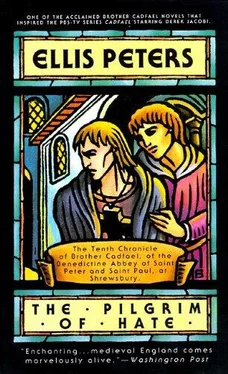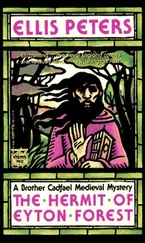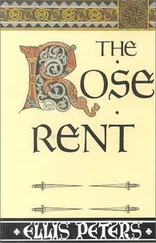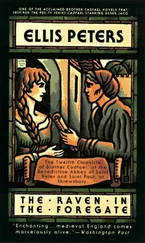Ellis Peters - The Pilgrim of Hate
Здесь есть возможность читать онлайн «Ellis Peters - The Pilgrim of Hate» весь текст электронной книги совершенно бесплатно (целиком полную версию без сокращений). В некоторых случаях можно слушать аудио, скачать через торрент в формате fb2 и присутствует краткое содержание. Жанр: Исторический детектив, на английском языке. Описание произведения, (предисловие) а так же отзывы посетителей доступны на портале библиотеки ЛибКат.
- Название:The Pilgrim of Hate
- Автор:
- Жанр:
- Год:неизвестен
- ISBN:нет данных
- Рейтинг книги:4 / 5. Голосов: 1
-
Избранное:Добавить в избранное
- Отзывы:
-
Ваша оценка:
- 80
- 1
- 2
- 3
- 4
- 5
The Pilgrim of Hate: краткое содержание, описание и аннотация
Предлагаем к чтению аннотацию, описание, краткое содержание или предисловие (зависит от того, что написал сам автор книги «The Pilgrim of Hate»). Если вы не нашли необходимую информацию о книге — напишите в комментариях, мы постараемся отыскать её.
The Pilgrim of Hate — читать онлайн бесплатно полную книгу (весь текст) целиком
Ниже представлен текст книги, разбитый по страницам. Система сохранения места последней прочитанной страницы, позволяет с удобством читать онлайн бесплатно книгу «The Pilgrim of Hate», без необходимости каждый раз заново искать на чём Вы остановились. Поставьте закладку, и сможете в любой момент перейти на страницу, на которой закончили чтение.
Интервал:
Закладка:
It seemed to him that they were both of them in haste to leave him, for the one set his feet tenderly to ground as soon as he was released, holding up the weight of his cross obediently with both hands, and the other stepped out through the doorway into the sunlit garden, and waited on guard for his friend to emerge. The one owed no special thanks, the other offered only the merest acknowledgement.
“But I would remind you both,” said Cadfael, and with a thoughtful eye on both, “that you are now present at the feast of a saint who has worked many miracles, even to the defiance of death. One who may have life itself within her gift,” he said strongly, “even for a man already condemned to death. Bear it in mind, for she may be listening now!”
They said never a word, neither did they look at each other. They stared back at him from the scented brightness of the garden with startled, wary eyes, and then they turned abruptly as one man, and limped and strode away.
Chapter Four
THERE WAS SO SHORT an interval, and so little weeding done, before the second pair appeared, that Cadfael could not choose but reason that the two couples must have met at the corner of his herber, and perhaps exchanged at least a friendly word or two, since they had travelled side by side the last miles of their road here.
The girl walked solicitously beside her brother, giving him the smoothest part of the path, and keeping a hand supportingly under his left elbow, ready to prop him at need, but barely touching. Her face was turned constantly towards him, eager and loving. If he was the tended darling, and she the healthy beast of burden, certainly she had no quarrel with the division. Though just once she did look back over her shoulder, with a different, a more tentative smile. She was neat and plain in her homespun country dress, her hair austerely braided, but her face was vivid and glowing as a rose, and her movements, even at her brother’s pace, had a spring and grace to them that spoke of a high and ardent spirit. She was fair for a Welsh girl, her hair a coppery gold, her brows darker, arched hopefully above wide blue eyes. Mistress Weaver could not be far out in supposing that a young man who had hefted this neat little woman out of harm’s way in his arms might well remember the experience with pleasure, and not be averse to repeating it. If he could take his eyes from his fellow-pilgrim long enough to attempt it!
The boy came leaning heavily on his crutches, his right leg dangling inertly, turned with the toe twisted inward, and barely brushing the ground. If he could have stood erect he would have been a hand’s-breadth taller than his sister, but thus hunched he looked even shorter. Yet the young body was beautifully proportioned, Cadfael judged, watching his approach with a thoughtful eye, wide-shouldered, slim-flanked, the one good leg long, vigorous and shapely. He carried little flesh, indeed he could have done with more, but if he spent his days habitually in pain it was unlikely he had much appetite.
Cadfael’s study of him had begun at the twisted foot, and travelling upward, came last to the boy’s face. He was fairer than the girl, wheat-gold of hair and brows, his thin, smooth face like ivory, and the eyes that met Cadfael’s were a light, brilliant grey-blue, clear as crystal between long, dark lashes. It was a very still and tranquil face, one that had learned patient endurance, and expected to have need of it lifelong. It was clear to Cadfael, in that first exchange of glances, that Rhun did not look for any miraculous deliverance, whatever Mistress Weaver’s hopes might be.
“If you please,” said the girl shyly, “I have brought my brother, as my aunt said I should. And his name is Rhun, and mine is Melangell.”
“She has told me about you,” said Cadfael, beckoning them with him towards his workshop. “A long journey you’ve had of it. Come within, and let’s make you as easy as we may, while I take a look at this leg of yours. Was there ever an injury brought this on? A fall, or a kick from a horse? Or a bout of the bone-fever?” He settled the boy on the long bench, took the crutches from him and laid them aside, and turned him so that he could stretch out his legs at rest.
The boy, with grave eyes steady on Cadfael’s face, slowly shook his head. “No such accident,” he said in a man’s low, clear voice. “It came. I think, slowly, but I don’t remember a time before it. They say I began to falter and fall when I was three or four years old.”
Melangell, hesitant in the doorway-strangely like Ciaran’s attendant shadow, thought Cadfael-had her chin on her shoulder now, and turned almost hastily to say: “Rhun will tell you all his case. He’ll be better private with you. I’ll come back later, and wait on the seat outside there until you need me.”
Rhun’s light, bright eyes, transparent as sunlit ice, smiled at her warmly over Cadfael’s shoulder. “Do go,” he said. “So fine and sunny a day, you should make good use of it, without me dangling about you.”
She gave him a long, anxious glance, but half her mind was already away; and satisfied that he was in good hands, she made her hasty reverence, and fled. They were left looking at each other, strangers still, and yet in tentative touch.
“She goes to find Matthew,” said Rhun simply, confident of being understood. “He was good to her. And to me, also-once he carried me the last piece of the way to our night’s lodging on his back. She likes him, and he would like her, if he could truly see her, but he seldom sees anyone but Ciaran.”
This blunt simplicity might well get him the reputation of an innocent, though that would be the world’s mistake. What he saw, he said-provided, Cadfael hoped, he had already taken the measure of the person to whom he spoke-and he saw more than most, having so much more need to observe and record, to fill up the hours of his day.
“They were here?” asked Rhun, shifting obediently to allow Cadfael to strip down the long hose from his hips and his maimed leg.
“They were here. Yes, I know.”
“I would like her to be happy.”
“She has it in her to be very happy,” said Cadfael, answering in kind, almost without his will. The boy had a quality of dazzle about him that made unstudied answers natural, almost inevitable. There had been, he thought, the slightest of stresses on ‘her’. Rhun had little enough expectation that he could ever be happy, but he wanted happiness for his sister. “Now pay heed,” said Cadfael, bending to his own duties, “for this is important. Close your eyes, and be at ease as far as you can, and tell me where I find a spot that gives pain. First, thus at rest, is there any pain now?”
Docilely Rhun closed his eyes and waited, breathing softly. “No, I am quite easy now.”
Good, for all his sinews lay loose and trustful, and at least in that state he felt no pain. Cadfael began to finger his way, at first very gently and soothingly, all down the thigh and calf of the helpless leg, probing and manipulating. Thus stretched out at rest, the twisted limb partially regained its proper alignment, and showed fairly formed, though much wasted by comparison with the left, and marred by the intumed toe and certain tight, bunched knots of sinew in the calf. He sought out these, and let his fingers dig deep there, wrestling with hard tissue.
“There I feel it,” said Rhun, breathing deep. “It doesn’t feel like pain-yes, it hurts, but not for crying. A good hurt…”
Brother Cadfael oiled his hands, smoothed a palm over the shrunken calf, and went to work with firm fingertips, working tendons unexercised for years, beyond that tensed touch of toe upon ground. He was gentle and slow, feeling for the hard cores of resistance. There were unnatural tensions there, that would not melt to him yet. He let his fingers work softly, and his mind probe elsewhere.
Читать дальшеИнтервал:
Закладка:
Похожие книги на «The Pilgrim of Hate»
Представляем Вашему вниманию похожие книги на «The Pilgrim of Hate» списком для выбора. Мы отобрали схожую по названию и смыслу литературу в надежде предоставить читателям больше вариантов отыскать новые, интересные, ещё непрочитанные произведения.
Обсуждение, отзывы о книге «The Pilgrim of Hate» и просто собственные мнения читателей. Оставьте ваши комментарии, напишите, что Вы думаете о произведении, его смысле или главных героях. Укажите что конкретно понравилось, а что нет, и почему Вы так считаете.












